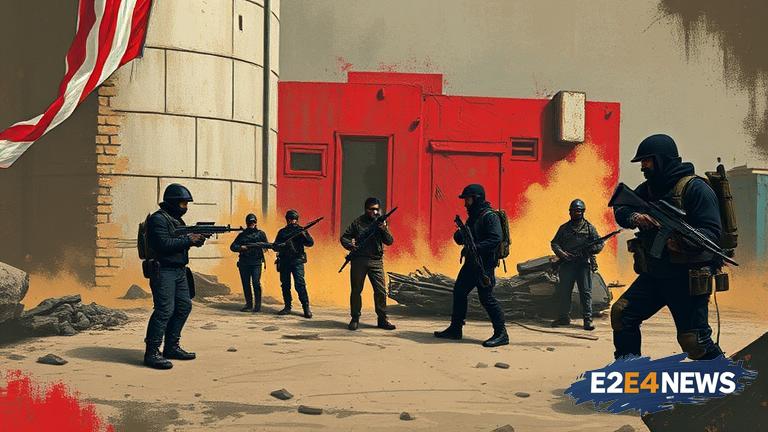Iran has announced the detention of a sabotage cell with ties to an exiled opposition group, marking a significant development in the country’s efforts to maintain national security. The cell, which was allegedly involved in various acts of sabotage and subversion, was uncovered through a series of intelligence operations and investigations. According to Iranian officials, the cell was linked to an exiled opposition group that has been actively working to destabilize the country. The group, which has been identified as a terrorist organization by the Iranian government, has been responsible for numerous attacks and acts of violence against civilians and government targets. The detention of the sabotage cell is seen as a major blow to the opposition group’s efforts to disrupt the country’s stability and security. Iranian authorities have stated that the cell was involved in a range of activities, including the planning and execution of terrorist attacks, as well as the spread of propaganda and disinformation. The cell’s members were also accused of collaborating with foreign intelligence agencies and receiving funding and support from external sources. The Iranian government has vowed to take all necessary measures to protect the country’s national security and stability, and to prevent the activities of such groups. The detention of the sabotage cell has been welcomed by many Iranians, who see it as a positive step towards maintaining peace and stability in the country. However, some have expressed concerns about the potential for human rights abuses and the treatment of detainees. The Iranian government has faced criticism in the past for its human rights record, particularly with regards to the treatment of opposition activists and dissidents. Despite these concerns, the detention of the sabotage cell is seen as a significant achievement for the Iranian authorities, who have been working to combat the threat posed by exiled opposition groups. The incident has also highlighted the ongoing tensions between Iran and its external enemies, who are seen as supporting and funding opposition groups. The Iranian government has accused several countries, including the United States and Israel, of providing support to opposition groups and seeking to destabilize the country. The detention of the sabotage cell has also raised questions about the role of social media and the internet in the activities of opposition groups. Many opposition groups use social media platforms to spread propaganda and disinformation, and to recruit new members. The Iranian government has taken steps to restrict access to social media and the internet, citing concerns about national security and stability. However, these measures have been criticized by some as an attempt to suppress freedom of expression and limit access to information. The incident has also highlighted the importance of international cooperation in combating the threat posed by terrorist and opposition groups. The Iranian government has called on other countries to take action against opposition groups and to prevent them from using their territories as a base for operations. The detention of the sabotage cell is seen as a significant step towards maintaining national security and stability in Iran, and has been welcomed by many as a positive development. However, it also raises important questions about the balance between security and human rights, and the need for international cooperation in combating the threat posed by terrorist and opposition groups. The Iranian government has stated that it will continue to take all necessary measures to protect the country’s national security and stability, and to prevent the activities of such groups. The incident has also highlighted the ongoing challenges faced by the Iranian government in maintaining stability and security in the country, and the need for continued vigilance and cooperation in combating the threat posed by external enemies.
